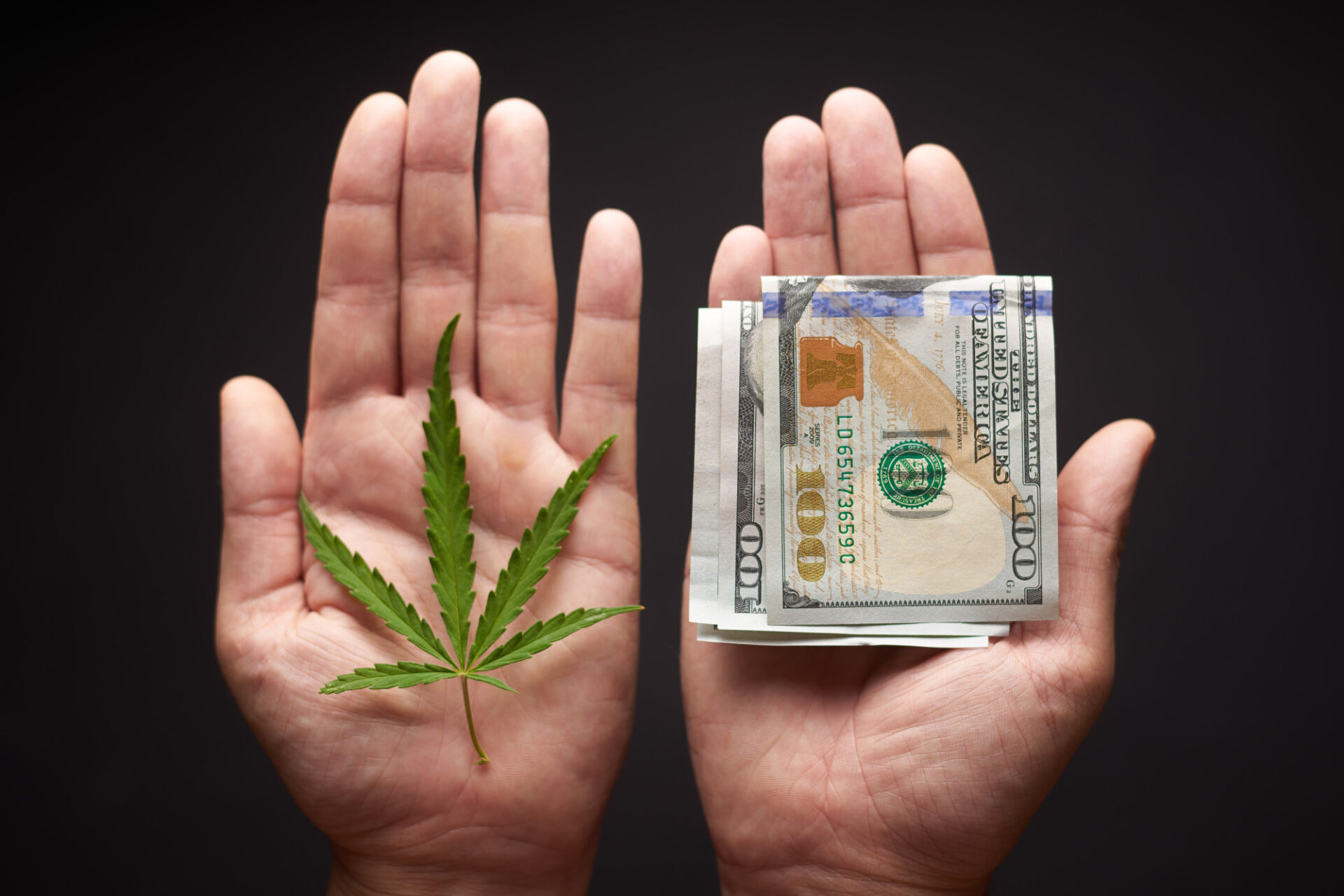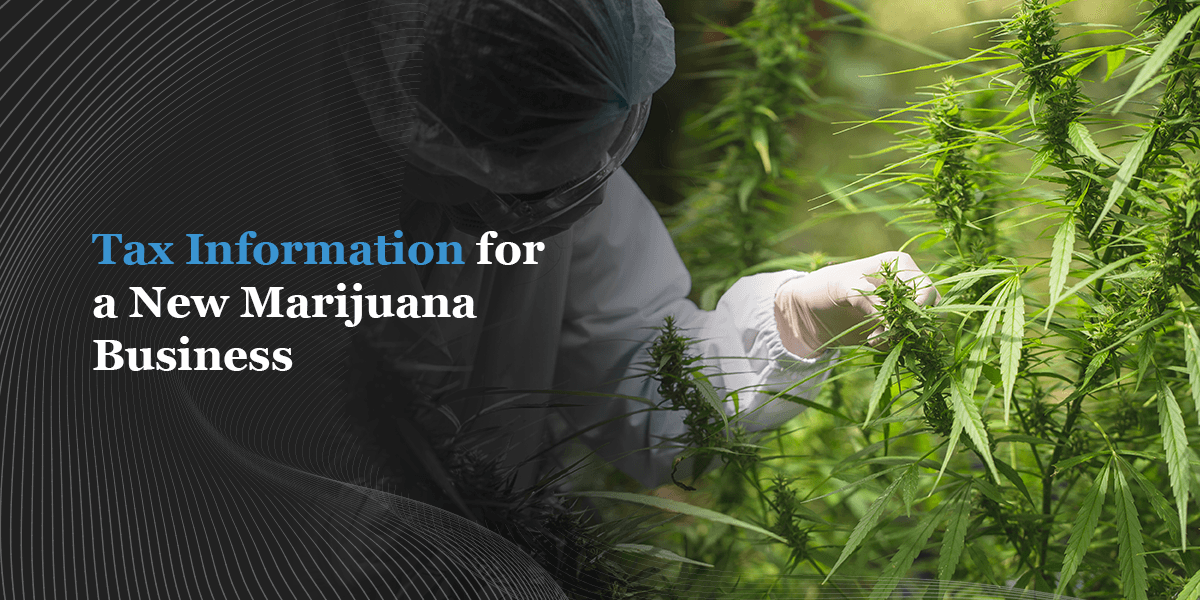
100+ Years of Combined Tax Resolution Experience.
100+ Years of Combined Tax Resolution Experience.
If there’s anything certain in life, it’s death and taxes.
Even with the ever-growing and profitable Cannabis industry, there’s one thing that makes taxes feel like death—and that’s the 280E tax code. If you’re a budding entrepreneur coming up in the cannabis business, you’ll want to learn everything you can about 280E and more.
You can start here.
Table of Contents
The 280E Tax Code and Cannabis
The Cannabis business is quickly becoming a multi-billion dollar industry. Of course, being a new business as well as a recently legal one, regulations still have yet to yield in its favor. This includes varying state laws in terms of taxation.
The truth of the matter is, despite its legalization and advantageous medical use throughout the 50 states, Cannabis is still classified as a Schedule I controlled substance. What this means is that even with the rapid growth of the Cannabis industry and destigmatization of the plant, entrepreneurs in the industry are still facing financial challenges tax-wise.
Arguably the greatest challenge for entrepreneurs in the Cannabis industry is that they have to pay a tax rate nearly four times higher compared to other conventional businesses.
Those who speculate on the subject could argue that this heavy taxation is due to the wealth the plant generates and the scrutiny that comes with being a “Cannabis dealer”. In other words, it’s a way to keep business owners within the industry under the federal thumb.
Regardless of speculation, to avoid any growing pains entrepreneurs need to be proactive about their business responsibilities. In addition to state and federal distribution and compliance laws, tax liabilities and laws must be understood and adhered to—beginning with the 280E tax code.
What Exactly is Section 280 E?
Section 280E was passed by Congress in 1982. Its purpose was to put a stop to taxpayer deductible expenses in relation to the sales of cocaine, amphetamines, and marijuana. (Yes, you read that right.) Before the passing of this tax code, deductible expenses included packaging, shipping, and transportation costs, and even the scales used to weigh the substances.
Here’s where it gets a bit hazy—even today, medical marijuana businesses remain illegal under federal law. However, there’s an overlap with state laws and the fact that cannabis business owners are still by law obligated to pay federal income taxes. The scrutiny lies within the discernability of whether the source of the total income is derived legally.
To put it in more simple terms, the IRS doesn’t differentiate between legally sourced and illegally sourced income when it comes to the selling of marijuana as a schedule I controlled substance.
As a business owner in the Cannabis industry, there technically are no “write-offs”. It’s kind of like they’re saying “well since we can’t catch you, we’re just going to take you for all you’re worth”.
Hence the aforementioned scrutiny.
Luckily, there’s a Loophole
Thanks to Congress’ irrational fear of potential constitutional challenges to the law, an exclusion was added to the section 280E tax code. The exclusion in question is known as the “cost of goods sold” exception.
This exception includes expenses directly related to the production of the plants. That would mean for growers it refers to the seeds, electricity, the labor—anything that directly went into the growing and preparation of cannabis to sell.
For dispensary owners, this exception is restricted to the amount they paid for the cannabis products for their retail.
So, How are Entrepreneurs Managing?
As the Cannabis industry grows, state and federal laws remain in flux. While the future of the industry is undeniably positive, we’re still dealing with the present as well as the past. Growers and retailers must maintain good business relationships with each link in the chain, from customers to the government.
So, how have those in business survived the dreaded 280E tax code? Here’s what the entrepreneurs suggest:
Get to Know the Local Tax Laws
Taxes don’t just vary by state, but by county and city as well.
It’s very important to understand how these tax implications will affect your business before setting yourself up with automated tax calculations. It’s best to consult with an accountant to ensure accuracy and make the proper adjustments from there.
Set Yourself Up the Right Way
Many business owners in the cannabis industry choose to set themselves up as a corporation for added protection. The issue with section 280E is that it disallows deductions, which creates what is called a “phantom income”. This means you’ll be getting taxed on money you never see.
A corporation protects business owners by creating a secondary business identity, helping them plan for additional tax burdens. Read more about it here.
Keep Highly Detailed Records
To meet strict compliance regulations, everything should be documented in full detail. This includes every single expense from cultivation to marketing. Since a Cannabis business is more likely to get hit with an audit from the IRS, you want to make sure you have a solid paper trail that backs up every move you make.
Categorize Your Employees
Categorizing your employees’ position in detail will help you to avoid penalties by more accurately reporting wages.
Tracking every employee position and keeping records of their time in each position will specify any actions that are deductible or non-deductible.
Create a Tax Order-of-Operations
There are levels to your tax responsibilities as a business owner in this industry. There are local taxes, state taxes, surcharges on taxes—you get the idea. Create a procedure for how you will apply these taxes to maintain accuracy in your reports.
Be Transparent
Based on geography and policies, taxes can have up to a 15 percent discrepancies on the same product. Make sure you’re transparent with your customers about this to alleviate any complaints.
You can do so by printing the tax details on the product receipts, hanging informative signs in your dispensary, and making sure your retail employees can answer all customer questions.
Support Your Fellow Cannaprenuers
Reforming section 280E will result in an increased net income for everyone in the industry as well as the federal government. To overcome the harsh federal regulations, everyone in the business has to work together for a 280E tax reform. So focusing on creating a strong community, there’s enough to go around for everyone.
Consult with an Expert
Taxes aren’t easy to navigate alone, especially the 280E tax that haunts the Cannabis industry. Luckily, you’re not alone. We’re experts on the subject, and we’re here to help. We offer a free consultation so that we can meet you and see how we can help your business. Give us a call at 844-841-9857 or click below to schedule a free consultation.
More On Cannabis CPA Accounting & Tax Services
- Cannabis CPA Accounting & Tax Services
- How to Structure Your Marijuana Business: Incorporation vs. LLC
- 3 Ways Cannabis Businesses Can Save Money This Tax Season
- How Your Business Can Pay Less Cannabis Taxes
- 280E Tax Code: Everything Cannabis Entrepreneurs Should Know
- A Guide to Cannabis Inventory Valuations
Additional Readings

Your Complete Guide to Understanding Cannabis Tax Running a legitimate cannabis business can be tricky since marijuana is still illegal under federal law. Currently, 24 states plus the District of Columbia have legalized the recreational use of marijuana, and 14 other states allow it for medical use only. Projections estimate revenue to reach $42.98 billion in 2024 in the United States. Yet, federal law...
As long as the marijuana industry is profiting, marijuana sales can generate $28 billion in tax revenue. Cannabis consumer demand is increasing and more states are open-minded to legalizing marijuana. The extra tax revenue can contribute to education, health, and more. The U.S. cannabis industry is worth billions of dollars and there are many opportunities...

Did you know that the value of the global marijuana industry is projected to grow to $63 billion by 2024? This growth will lead to an increase in jobs in the industry across the United States, which means the industry is showing no signs of slowing down. If you’ve been thinking about starting a marijuana business, now is a great time to do...

Paying taxes as a cannabis dispensary owner is a delicate affair. Pretty soon, anyone involved in the cannabis industry — from seed to sale — will be under scrutiny. This includes everyone in between, whether they be landlords, transportation companies or management companies. The 280E tax audit applies to anybody who has been in...

The cannabis industry is on the brink of a revolution as marijuana legalization promises to change the economic landscape forever. Cannabis business owners are on the vanguard of the biggest boom since oil, but only if they mind the taxes. While profitable, the industry is one of the most taxed in the country. Federal law treats marijuana companies as illegal, subjecting them to strict...

It’s never been a better time to consider starting a marijuana business. In the United States, the most commonly used, federally illegal drug is marijuana. Approximately 48.2 million Americans have used marijuana at least once. With new laws getting passed, the legalization of marijuana across the country is within reach. The global legal cannabis market is projected to reach $63...